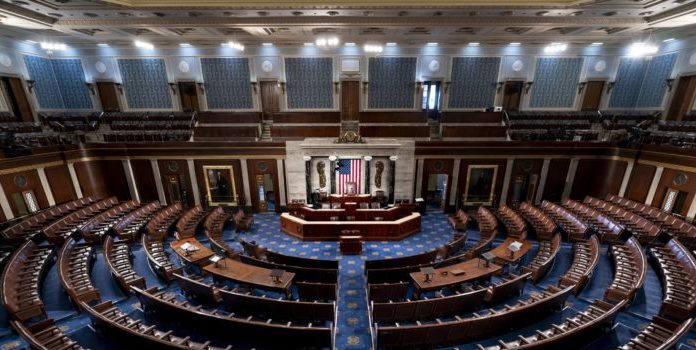(Headline USA) The partisan divide in Congress makes action on the banking crisis improbable.
Democrats are, once again, calling for even more regulations while Republicans want to know why regulators are failing to enforce the laws that already exist.
“There’s people who are going to choose bills, but I cannot imagine that … we can pass anything significant,” said Sen. Sherrod Brown, D-Ohio, chairman of the Senate Banking, Housing and Urban Affairs Committee.
Republicans say the fault is with regulators and not the laws.
“If there are ideas out there that people have, you know, at some point, we would be willing to entertain those, but I think it would be premature to start talking about solutions before we fully define the problem and ultimately get answers from the regulators about why they were asleep at the job,” said Sen. John Thune of South Dakota, the second-ranking Republican.
The House Financial Services Committee has announced its first hearing for March 29, featuring at least two witnesses: Martin Gruenberg, chairman of the Federal Deposit Insurance Corp.’s board of directors, and Michael Barr, vice chair for supervision with the Federal Reserve’s board of governors. “We will conduct this hearing without fear or favor to get the answers the American people deserve,” lawmakers said.
On the Senate side, Brown said his committee will also hold a hearing soon to help lawmakers assess what went wrong. He said the first hearing is likely to focus on bringing in witnesses responsible for regulating the failed banks. The Fed board was the primary regulator for Silicon Valley Bank in California, while the FDIC was the primary federal regulator for Signature Bank in New York.
Brown spelled out some of the questions lawmakers probably will have for the regulators in a letter Thursday asking them to undertake a comprehensive review of what went wrong. What role did social media-led coordination among customers play? What role did the large percentage of uninsured deposits at Silicon Valley Bank play? Were there regulatory gaps with respect to capital, liquidity and stress testing that played a role in the failures?
Sen. Bill Hagerty, R-Tenn., said he wants to know why regulators did not act on detailed reports of a liquidity risk at Silicon Valley Bank and why the FDIC failed to auction off the bank’s remaining parts last weekend.
Sen. Cynthia Lummis, R-Wyo., said she wants to know if regulators intend to use the failure of Signature Bank to further crack down on cryptocurrency. She has been a vocal advocate for cryptocurrency development and is an investor in bitcoin. Signature was the first FDIC-insured bank to offer a blockchain-based digital payment platform in 2019 and had been a go-to bank for the crypto industry.
Sen. John Kennedy, R-La., said he wanted to know how private stock analysts had warned about Silicon Valley’s investments but regulators did not seem to know about potential problems.
Democrats have proposed new regulations in the form of a new bill, but Republicans pointed out that the tiered oversight they established in 2018 with the support of several Democrats in both chambers gave federal regulators all the tools they needed to catch the problems at Silicon Valley and Signature before they became fatal.
“I think the issue here is liquidity and there are liquidity stress tests that regulators have established for the banks,” said Sen. Mike Crapo, R-Idaho, and the author of the 2018 changes to Dodd-Frank. “If they need to tighten those up, they have the authority to do it.”
With that philosophical divide, it’s unlikely the Democrat’s bill will advance in Congress.
One bill which is not a solution, but rather a punishment for greedy executives, might have a better shot. The bill from Sen. Richard Blumenthal, D-Conn., and Democratic Reps. Adam Schiff and Mike Levin of California would recoup any bonuses and profits that bank executives receive from stock sales make in the 60 days before a bank failure.
Republicans directed considerable ire at the executives of the failed banks this week.
“I think all of that ought to be clawed back,” Kennedy said of bonuses. “And this time, I hope somebody goes to jail.”
Adapted from reporting by the Associated Press

